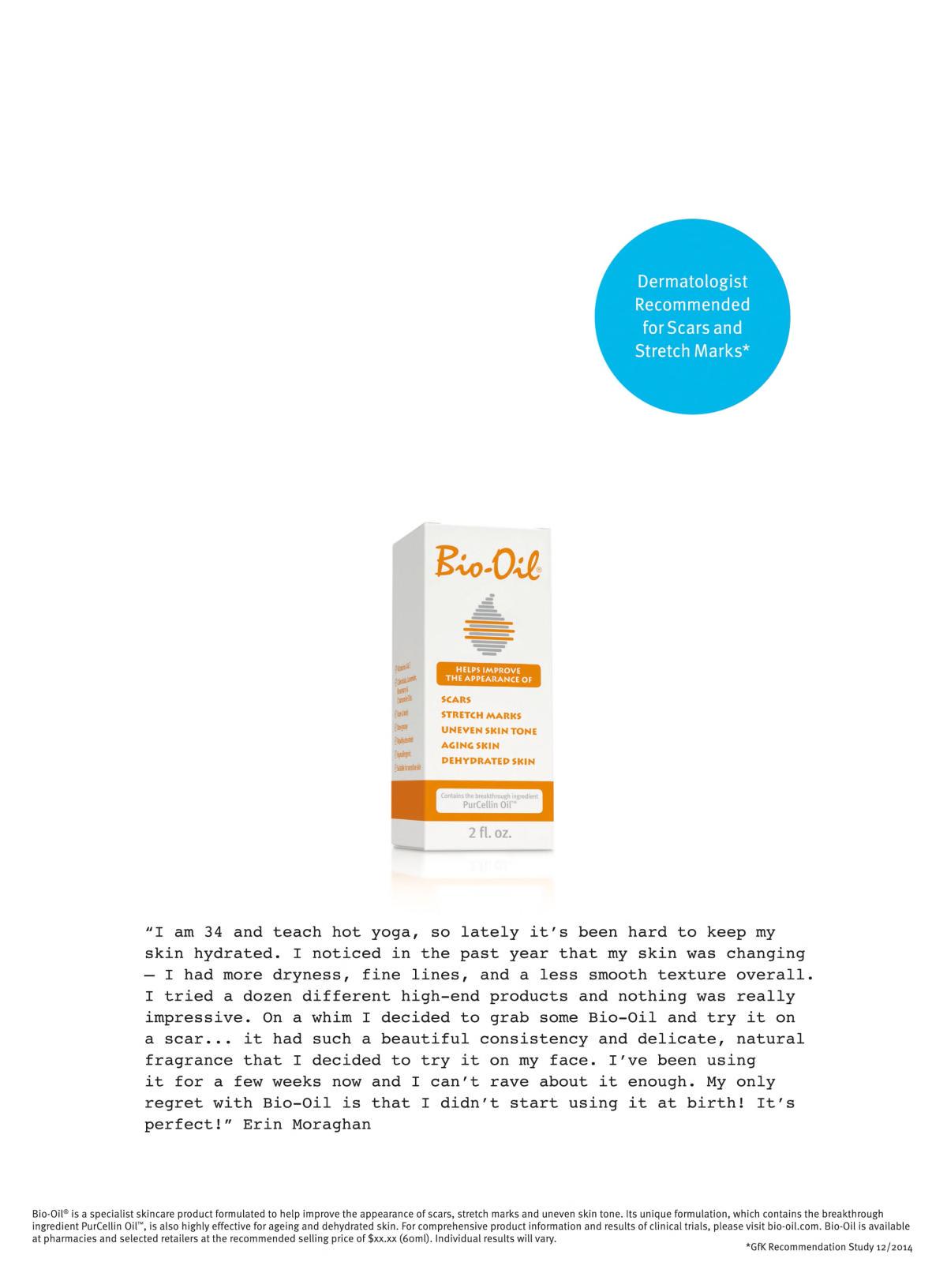
1 minute read
Body News. Smokers’

BODY
Advertisement
By Kristin Sainani
SMOKERS’ METABOLISM
Smokers could improve their odds of quitting by selecting a treatment based on the way they metabolize nicotine. Slow metabolizers, whose body’s level of nicotine drops gradually, made up 40 percent of the people in a study led by Caryn Lerman, a professor of psychiatry at the University of Pennsylvania. For these people, who may be less prone than other smokers to nicotine cravings, the drug Chantix was no more effective than the nicotine patch, and it caused more side effects, such as nausea. But among normal metabolizers, taking Chantix for 11 weeks led to a higher rate of quitting than using the patch. Scientists are in the process of creating a nicotine-metabolism test for doctors’ offices. For now, a 2014 study suggests that women, particularly those taking birth control pills, tend to be normal nicotine metabolizers.

FAT-BURNING PILL
An experimental drug tricks the body into burning more calories than usual. When mice were given fexaramine pills daily, they gained less weight than another group that received no pills and the same amount of food. The drug triggers signals that tell the body it needs to digest a meal, which causes it to burn some stored fat, even when no food has been consumed, according to lead study author Sungsoon Fang, a scientist at the Salk Institute in La Jolla, California. Fexaramine, which still needs to be tested on people, is expected to have fewer side effects than existing diet pills because it is not absorbed into the bloodstream.
ACNE RISK
Acne may be linked to increased risk of melanoma and breast cancer. Women in a study who reported a history of severe acne as a teenager were 44 percent more likely to develop melanoma and 17 percent more likely to develop breast cancer than those with mild or no acne. Hormones that drive acne and breast cancer may also play a role in mole formation and melanoma development, the study authors write in the journal Cancer. It may be advisable for women with this history to be especially vigilant about breast- and skin-cancer screenings.










